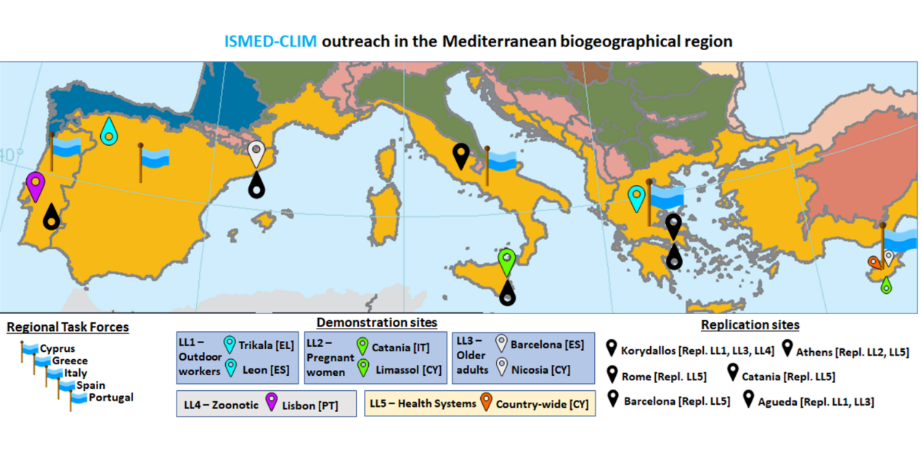A new large-scale research project from the Horizon Europe programme has been awarded to the University of Cyprus. The project, with a total budget of € 6 500 000 will be coordinated by Dr Panagiotis Gialluros, Professor of the Faculty of Medicine.
The project, acronymed ISMED-CLIM, is entitled ”Innovative Solutions across the Mediterranean for mitigation of Climate change-related health risks and enhancing health system resilience”. It aims to develop innovative solutions to address climate change risks to the health of vulnerable population groups and national health systems.
ISMED-CLIM, involving 27 actors from 7 countries, is expected to start in November 2024 and run for 4 years. The project proposes solutions and applications to be tested in European countries across the Mediterranean, Cyprus, Greece, Italy, Cyprus, Italy, Spain and Portugal, which are strongly affected by the impacts of climate change.
The University of Cyprus participates in ISMED-CLIM with the Faculty of Medicine, which coordinates the whole project, the Department of Civil and Environmental Engineering and the Department of Social and Political Sciences, while from Cyprus also the Cyprus Institute, the Health Insurance Organisation (OAI), the Federation of Pensioners EKYSY and the high-tech company EBOS Technologies Ltd.
Project coordinator Professor Yalluros in his remarks noted that the Mediterranean region is located on the border between the temperate and arid climate zone and has been declared as one of the climate change hotspots in Europe. The increase in average temperature in the region exceeds the global average and frequent temperature extremes, floods and forest fires affect both mortality and morbidity of the population.
According to Dr. Yalluros, there is newer worrying data showing that:
- excess deaths and hospitalisations attributed to extreme temperatures across Europe are highest in Southern Europe and are exacerbated by higher air pollution, particularly among older adults and socially weaker sub-populations,
- heat waves in the Mediterranean region are projected to increase dramatically by the end of the 21st century, increasing the fraction of heat-related deaths in the region,
- heat exposure causes a wide range of adverse health effects, such as mental stress, heat stress, dehydration, sleep disturbances, hypertension, particularly among vulnerable groups of the population, such as outdoor workers, pregnant women and the elderly, despite the recommendations and treatment plans developed to prevent these effects?
- insect-borne diseases account for 17 % of all infectious diseases and are directly affected by external factors and climate change; and finally,
- climate change threatens healthcare systems by increasing demand, disrupting infrastructure, increasing costs and jeopardising the provision of high quality healthcare.
In relation to these risks, the ISMED-CLIM project aims to engage and mobilise regional policy makers, social actors and citizens in the implementation of mitigation solutions. In addition, it will evaluate and enhance the effectiveness of a set of interventions to reduce extreme climate exposures and related health impacts on vulnerable population groups. As part of the One Health approach, it will also develop and test an integrated surveillance tool for high-risk professionals to manage zoonotic disease prevention actions and interventions. Taking into account local characteristics, it will adapt existing evidence-based practices and prototype tools to increase the preparedness and capacity of health systems in the Mediterranean region to deliver safe and effective care to citizens in the context of ongoing climate change. Finally, it will develop knowledge, policies, processes and tools to effectively replicate these solutions and promote beneficial systemic reforms in environmental and public health.
Source: University of Cyprus | Latest news (https://shorturl.at/9sbOy)
